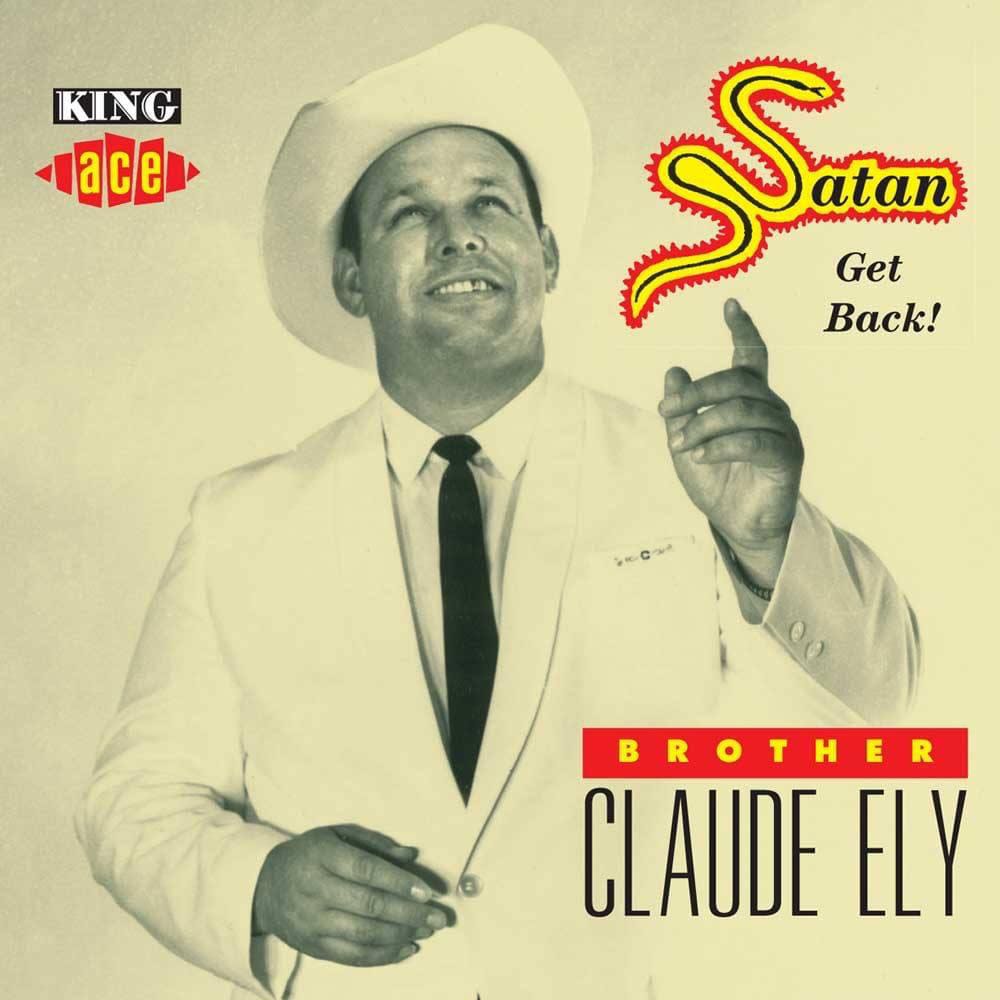“There ain’t no grave gonna hold my body down
There ain’t no grave gonna hold my body down
When I hear that trumpet sound I’m gonna get up out of the ground
‘Cause there ain’t no grave gonna hold my body down”

You might not be familiar with the name “Brother” Claude Ely but if a “Mount Rushmore of Pentecostal Holiness Gospel Singers” existed then his face would most certainly be prominently displayed. The snake-handling variety of Pentecostals seem to soak up most all of the spotlight when it comes to religion in Appalachia because, well, they pick up deadly snakes, drink poison, and play with fire for crying out loud.
Having said that, the Pentecostals who don’t practice snake-handling make up a far greater number of churchgoers throughout Appalachia.
The life story of Brother Claude Ely doesn’t need snakes, poison or fire to be entertaining. Claude Ely was born in Lee County, VA, in what we Appalachians call a “holler” known as Puckett’s Creek near Pennington Gap on July 22, 1922. At the young age of 12, Ely fell ill and was given what was thought to be a fatal diagnosis of tuberculosis.

Despite his grim prospects, young Claude spent much of his sick time learning to play a guitar that an uncle had given him. One day during this period in his life, Ely’s family gathered around his bed to pray for him when Claude boldly proclaimed, “I’m not going to die.” Claude then began to sing a song he’d written while on what doctors presumed would be his deathbed, “There ain’t no grave gonna hold my body down! There ain’t no grave gonna hold my body down!”
Defying the terminal medical prognosis, Claude recovered from his affliction with renewed faith and a powerful message. Claude Ely would later go on to work in the coal mines of Harlan County before and after serving in the military during World War II.
Claude felt the calling to preach in 1949 and he answered the call with a fervor as he soon earned the title of the “Gospel Ranger.” Ely conducted revivals throughout Eastern Kentucky, East Tennessee, and Southwest Virginia, gaining a following due to his reputation for fiery sermons and impassioned singing.

Claude Ely had a larger than life persona as he was an imposing, husky man who sported a gold tooth while often wearing a white cowboy hat and matching white suit. As he came to each new town, Ely would drive through with a bullhorn shouting out an invitation to his tent meetings where he proclaimed attendees could “experience the fire and Holy Ghost.”
Claude Ely was approached by King Records while ministering at the Free Pentecostal Church of God in Cumberland, Kentucky, to record his singing for commercial distribution . Ely allowed recordings to be made of one of his live sermons in 1953 making him the first Pentecostal Holiness recording artist to sign with a major record label.
Claude Ely’s popularity spread even further with the release of the song he’d written as a sickly 12 year old boy. “There Ain’t No Grave (Gonna Hold My Body Down)” went on to become an anthem and a staple of Pentecostal churches for years to come. Claude Ely would spend the remainder of his life preaching fire and brimstone while singing with that same conviction to save lost souls.
On May 7, 1978, Ely suffered a massive heart attack in front of the congregation at his home church of Charity Tabernacle in Newport, Kentucky (just across the river from Cincinnati, Ohio.) Ely was playing the organ and singing “Where Could I Go But To The Lord” when he suddenly fell backward midway through the song. Churchgoers began to cry out and pray over him but to no avail as Claude Ealy passed away at the age of 55.
Ely was brought back to southwest Virginia where he is buried at a cemetery in the town of Dryden in Lee County.
Although he has been gone for over 40 years, Claude Ely is still well remembered in many Pentecostal corners of Appalachia. Among Ely’s fans was one Gladys Presley, mother of a young man you might know as Elvis Presley, who is said to have brought Elvis to at least one of his tent revivals to have Ely lay hands on them in prayer. Elvis was later inspired by Ely’s version of “There’s a Leak In This Old Building/You’ve Gotta Move” to sing a rendition of the song under the name “We’re Gonna Move” for his film “Love Me Tender.”
Johnny Cash would record a version of Ely’s “Ain’t No Grave” that was released posthumously in 2010 (the song also included musical contributions by the Avett Brothers.) I am a huge fan of Johnny Cash but I can tell you that Claude Ely’s version is night and day better than Johnny’s version. I personally remember being in church as a small child thinking to myself the toddler equivalent of, “this joint is gonna start jumpin’ now” when they would start singing “Ain’t No Grave.”
If you haven’t heard the song, just watch this YouTube link in this post so you can get a sense of what it sounds like when done up-tempo. Some of our Pentecostal followers can verify my claim that this song will bring the house down when done well. I have attended numerous concerts spanning many genres of music, but I have never seen any performance that can whip a crowd into a sing-along/clap-along frenzy like a passionate rendition of “Ain’t No Grave” in a little country church deep in these hills…can I get an amen?
